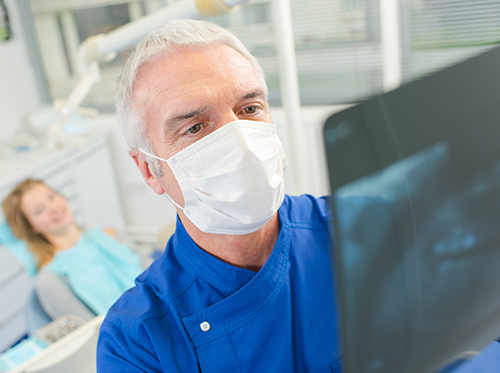
We’re all trying to find a healthy balance in our lives. Balancing work and home life. Eating a well-balanced diet. Balancing our budgets. Maintaining the right pH balance in our mouths for better dental health. Wait, what was that last one?
You probably don’t spend a lot of time thinking about your pH levels, but if your oral pH is out of balance it can affect the health of your teeth.
What do we mean by pH levels? In biology and chemistry, the pH scale is a tool used to measure the concentration of hydrogen (H⁺) ions and hydroxide (OH⁻) ions in a solution.
The higher the concentration of hydrogen atoms, the more acidic a solution. The higher the concentration of hydroxide ions, the more alkaline. The pH scale goes from 0 to 14, with the most acidic reading possible rating a 0, and the most alkaline, a 14.
You don’t have to be a biochemist to use the information provided by pH samples. We use pH readings to discover the ideal acid/alkaline conditions in many everyday applications. Azaleas grow best in very acidic soil. Swimming pools should be just a bit alkaline. Brewers test pH throughout the beer-making process for optimal fermentation—and taste.
When it comes to saliva, a neutral pH range of around 6.2 to 7.6 is generally considered normal. High alkalinity in saliva is rare. High acidity levels? Unfortunately, much more common. And an acidic environment has real-world consequences for teeth.
Plaque contains bacteria, which produce acids. Calcium and phosphate, the minerals that help make enamel the strongest substance in the body, are leached out by these acids. The weak spots left behind make enamel vulnerable to further erosion and, eventually, decay. When saliva has a normal, neutral pH, it helps neutralize plaque acids to reduce the risk of cavities.
But it’s not just bacteria that expose our teeth to acidic conditions—we do it ourselves with our choice of food and drink.
Acidic foods can directly lower the pH level in saliva. Lemon juice, for example, has a pH between 2 and 3. Red wine has a pH between 3 and 4. Blueberries? Around a 3.2. When the pH level in saliva becomes 5.5 or lower, the minerals in our teeth start to “demineralize,” or lose the minerals which keep enamel strong and intact—just the way enamel is demineralized by acids from plaque. This process is known as acid erosion.
Many of our favorite foods are acidic to some degree. Citrus and other fruits, pickled foods, vinegar, wine, coffee, tea—all of them can lower the optimal pH level of saliva. And sports drinks, energy drinks, and sodas? Check the labels and you’ll often find citric acid, phosphoric acid, and/or carbonation, all of which combine to create extremely erosive conditions.
So, no more soda? Or fruit? No. You don’t have to give up acidic foods altogether for healthy teeth. True, you won’t give up much eliminating soda from your diet. But fruits, vegetables, dairy foods, and meats are the source of essential vitamins, minerals, and proteins, and many of these healthy food choices have an acidic pH. How to eat nutritiously while protecting your enamel? Again, it’s a balancing act.
- Enjoy acidic foods sparingly, or as part of a meal. Saliva can neutralize acids more effectively when they aren’t washing over your teeth all through the day.
- Use a straw when you drink something with a low pH to reduce your enamel’s exposure to acids.
- Balance high-acid foods with low-acid choices to help neutralize the acids in your diet. Add a banana to your blueberry smoothie. Pair your wine with some cheese.
- Rinse with water after eating or drinking. When it comes to balanced pH, pure water is a 7.0 on the scale, a perfect neutral.
- Chew sugarless gum to increase saliva production.
- Use fluoride toothpaste—it not only helps prevent cavities, it helps remineralize teeth.
Even with your best efforts, acid erosion can be a problem. You might be experiencing enamel damage if you notice any of these symptoms:
- Tooth pain or sensitivity.
- Teeth that appear discolored. This happens as the whiter enamel thins, revealing the yellowish dentin underneath.
- Changes in the shape of your enamel—your teeth become rounded or have little dents or pits, known as cupping.
- White spots on your teeth, which could be a sign of demineralization.
If you think you could be suffering from enamel erosion, it’s a good idea to talk to Dr. Nymberg when you visit our Mason office. We can diagnose conditions causing acid erosion, treat you if enamel damage has occurred, and offer suggestions for diet and eating habits to make sure your oral pH—and your dental health—is always in balance.







